|
Staff

Dr Amanuel Tamiru
- Senior Scientist and Program Leader
Dr. Amanuel Tamiru assumed the leadership of Push-Pull programme, from 1st January 2024. He is a Senior Scientist under the Plant Health Theme.He earned a Ph.D. from Kenyatta University through doctoral research conducted at icipe (Kenya), Rothamsted Research (UK) and Martin-Luther-Universität Halle-Wittenberg (Germany). He holds an MSc in Biology (Insect Sciences) from Addis Ababa University and a BSc in Agriculture (Plant Sciences) from Hawassa University.
He conducts cutting-edge research in plant signaling and insect-plant interactions, employing the latest behavioural and chemical ecology techniques. He has discovered, for the first time, that insect-egg deposition induces the production of bioactive volatiles attractive to parasitic wasps in some maize cultivars and elucidated underpinning molecular mechanisms. His other key discoveries include elucidating the underpinning chemical ecology mechanisms of the ‘Push-Pull’ cropping system in fighting an invasive fall armyworm pest, characterization of the first male-produced aggregation pheromone in the genus Megalurothrips and identification of volatile semiochemicals mediating vector thrips species-maize chlorotic mottle virus-host plant interactions.
He is a recipient of several highly competitive awards and fellowships including the Consortium of International Agricultural Research Centers (CGIAR) Independent Science and Partnership Council (ISPC) - Early Career Scientist Award, the prestigious Rothamsted International Award, Rothamsted Research (UK), German Academic Exchange Service (DAAD) Award, Martin-Luther-Universität Halle-Wittenberg, (Germany), Entomological Society of America (ESA) - Early Professionals (STEP) Award and icipe's Governing Council Award for Best Published Science Paper. He has authored and co-authored several scientific publications in high-impact journals such as Ecology Letters.... More..
|
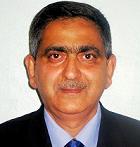
Prof. Zeyaur Khan
Prof. Zeyaur R. Khan is an Emeritus Scientist. He has dedicated his 30 year career as an
international agricultural scientist to advancing the science and practice of agriculture by studying and applying
chemical ecology, behavior, plant-plant and insect-plant interactions to improve farm productivity to combat poverty
and food insecurity in Africa. He is responsible for the discovery and wide scale implementation of a pro-poor scientific
innovation for enhancing food security and environmental sustainability in Africa. This was achieved through the biologically-based
IPM technology called ‘Push-Pull’ ( www.push-pull.net), developed for small-holder
cereal-livestock African farmers. Prof. Khan’s work is a wonderful example demonstrating that creativity and innovation
in science can provide practical solutions for the real problems of thousands of small-holder poor farmers and promote
their food security and sustainable livelihoods. Prof. Khan obtained his Ph.D. from Indian Agricultural Research Institute,
New Delhi in 1980. Before joining icipe, he worked with International Rice Research Institute (1983-1991), University of
Wisconsin, Madison (1985-1986) and Kansas State University, Manhattan (1991-1993). Prof. Khan also holds a position of
Visiting Professor at Cornell University. Prof. Khan is Fellow of Entomological Society of America and Fellow of Royal
Entomological Society, London. In 2009 Prof. Khan was awarded the International IPM excellence award, a plenary speaker
at during XXIII International Congress of Entomology in 2008 and the 2010 winner of the Nan-Yao Su Award for Innovation
and Creativity in Entomology. He has authored/co-authored over 100 scientific papers in referred journals, over 10 book
chapters, five books and several booklets and brochures.
|

Jimmy Pittchar
Jimmy Pittchar is a Social Scientist. His research interests interface natural and social sciences, translating bio-sciences
into sustainable development of agricultural systems, resilient food systems and enabling sustainable impacts of scientific innovations.
He conducts inter-disciplinary research on the development, adaptation and adoption of icipe’s push-pull technology (www.push-pull.net)
in Africa. This includes downstream research on technology transfer pathways, technology diffusion and impacts on livelihoods. He contributes
to program management, monitoring and evaluation, and development of strategic partnerships with national research and extension systems as
well as NGOs and the private sector. He holds a Bsc degree in mathematics and computer science and a Masters degree in social science,
specialising in mathematical modeling of human populations, biological and environmental processes driving them, their spatial organization
and economic development. He has over 26 years’ international research, development and programme management experience gained as a researcher
and lecturer at University of Nairobi and Adviser to the United Nations.
|
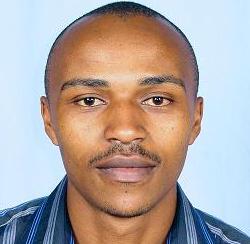
Benard Kimani
Benard is a technician at icipe. A graduate of Moi University with a Bachelor of Technology degree. Bernard has had brief stints with Pricewaterhouse Coopers Kenya, Airtel (formerly Zain) Kenya Ltd and Dawa Pharmaceuticals between 2008 and November 2010, before coming to icipe.
|
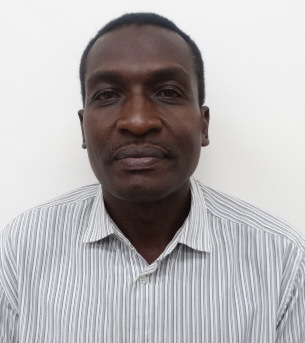
George Genga
George is a Research Officer.
He holds a to Bachelor of Science degree in
Agriculture production from Kenya Methodist
University, a diploma from Egerton
University in Ranch Management and dry land
farming, plus other numerous short duration professional trainings.
He handles the training portfolio with emphasis on technology transfers and adaptive
research. He assisted in the rollout of push –pull demonstration plots in Malawi and Zambia.
Prior to current engagement, he worked in the public sector at various levels
for a considerable duration. (Both National and county based programmes). Previously, he worked for
icipe –TOC Mbita Push –pull program during the years 2003-2008. He has had past stints with Kenya Sisal
Board/FAO Integrated dairy project, NDDP -National Dairy Development programme, ASAL GOK – SNV Netherlands programme,
was a Facilitators trainer for Participatory Planning and Project Management Trainings by a UNDP -Capacity 21
, Kendelevu Project for Nyanza/Western, Project Self Review and Planning (PSRP) facilitator for Heifer International
under the Homa Bay Orphans Livelihood Project (HOLP), advisor Livestock related activities to KOSFIP Kimira –Oluch
Smallholder Farm Improvement Project funded by AfDB, .He has skills in both formal and informal collaboration areas of
the project implementation with regional stakeholders.
|

Lavender Agutu
Lavender is laboratory technician. She holds a Bachelor of Science degree (Biochemistry and Biological sciences), obtained in the year 2010 from Kenyatta University, Kenya.
She is currently part of a research group developing an integrated management approach for a new stunting disease of Napier grass, Pennisetum purpureum, caused by phytoplasma.
Her duties involve generic and specific detection of the stunt phytoplasma using the molecular diagnostic techniques, nested PCR (polymerase chain reaction) and the loop-mediated
isothermal amplification (LAMP) assay. Lavender is also charged with the responsibility of DNA extraction and purification, and gel electrophoresis, techniques in which she is
very well conversant. Similarly, she is involved in implementation of semi-field and field experiments following the standard operating procedures. Some of these include screening
various grass species for resistance to the stunting disease, exploring phytoplasma exchange between different grass species, determining the phytoplasma host range, and development
of simple phytoplasma diagnostic tools, among others.Additionally, she enters and manages data, presentations
and compiles project reports as required.
|
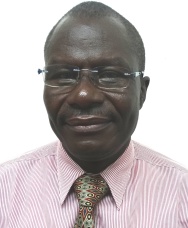
Dickens Nyagol
Dickens is a technician, working with the smallholder farming communities in western Kenya in furthering the adoption of the
Push-Pull technology. He is also involved in training of different farming groups on desmodium seed production besides working with icipe partners.
|
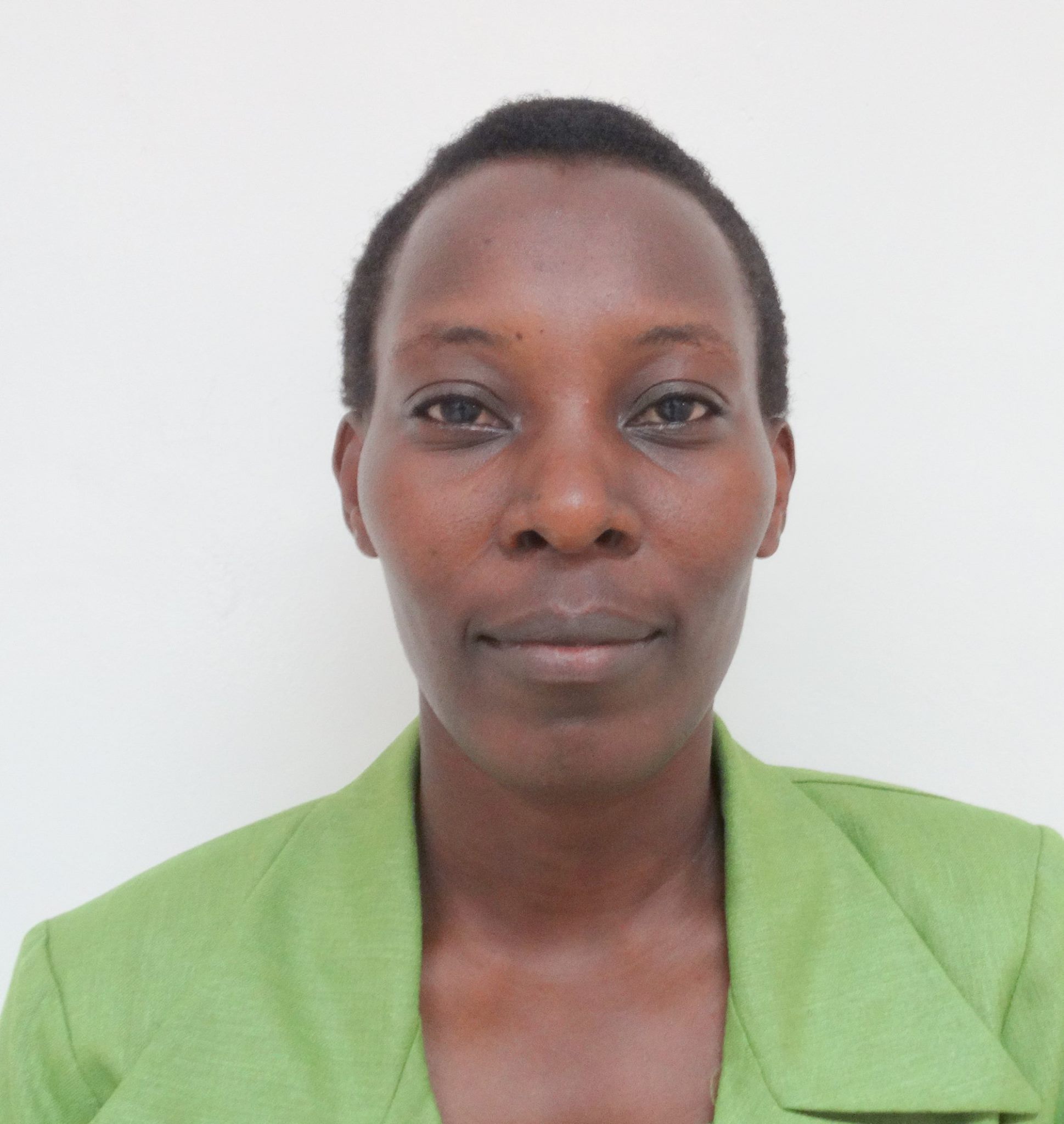
Eunice Mumbo
Eunice joined icipe as a Data Management Officer for the Push-Pull Programme and she will be based at icipe Thomas Odhiambo campus, Mbita.
She holds a Bachelors degree in Textile Science and Design from Kenyatta University and Certificates in Information Technology, Statistical Software SPSS and R/R studio and ACCA from Nairobi Institute of Business Studies.
Prior to joining icipe Eunice worked as a Data Management Clerk with CIAT – Maseno (2010-2014).
|
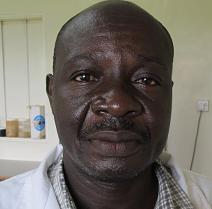
Amos Gadi
Amos is a technical assistant, rearing and diet preparation of Busseola fusca, Chilo partellus, and parasitoids for research and development.
|
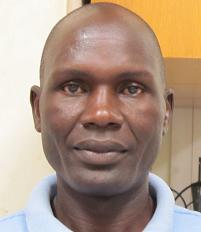
Silas Ouko
Silas is a technical assistant. He is involved in both lab and field experiments.
|
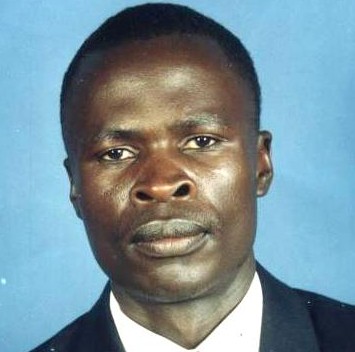
Aloice Ndiege
Aloice is a technical assistant at icipe. He holds an advance diploma in community development and resource mobilization from Cambridge, UK; a diploma in veterinary science from Thomsom Education Direct, USA; and a certificate in Agriculture, from Moi Institute Technology, Kenya. As a technical assistant, Mr. Ndiege is working with the smallholder farming communities in western Kenya in furthering the adoption of the Push-Pull technology. He is also involved in training of different farming groups on desmodium seed production besides working in partnership with Heifer Project International (HPI) and AIDSRELIEF Catholic Relief Services and other NGOs’ in technology dissemination. Previously, he assisted the scientists in setting up on-station and on-farm experiments on the Push-Pull technology in addition to dissemination of the technology in Eastern Uganda through strategic partnerships with players in the cereal-livestock value chains, and farmer to farmer approaches such as Farmer Field Schools.
|

Joseph Ondijo
Joseph is a technical assistant, involved in the on-station experimental trials.

Victoria Apondi
Victoria is a research officer at icipe, working under Vegetable Integrated Push-Pull Technology (VIPPT). Her responsibilities include training farmers on the Asset Based Community Driven Development (ABCD) model to enable them to identify income-generating opportunities to achieve a dignified livelihood. She is passionate about intrahousehold dynamics, nutrition, and supporting women entrepreneurship. She monitors progress and writes reports. Before joining ICIPE, Victoria worked as a Field Research Attendant with CIFOR-ICRAF, implementing ABCD and value chain analysis with smallholder farmers in Kericho, Kisumu and Homabay Counties. She has co-authored several scientific publications related to ABCD. Previously she also worked with the Millenium Villages Project Sauri, Kenya. With over 30 years of experience as a dedicated community development practitioner, Victoria holds a Higher Diploma in Community Health and Development from Great Lakes University of Kisumu and various professional courses
|
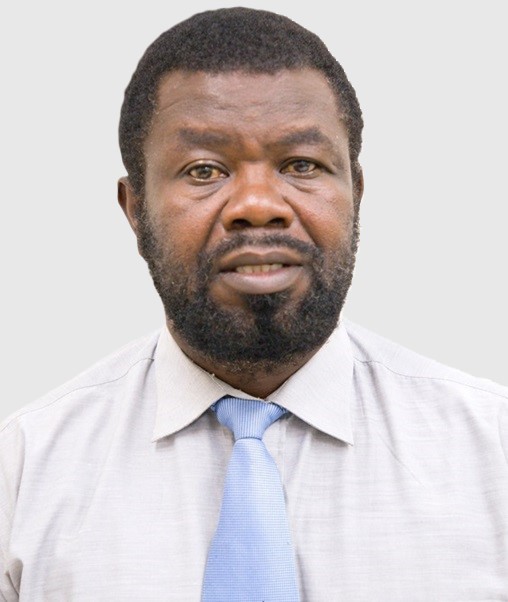
Phil Orondo
Philemon is responsible for managing various areas related to ICT systems, including web content, program visibility, data systems, communications, systems infrastructure, and administration. His responsibilities include creating web content applications while ensuring security, real-time data updates, and optimized performance. He provides technical support to drive the program forward.
Before joining icipe in 2005, Philemon worked as a systems engineer with internet service providers. During that time, he ensured that corporate clients were supported and secured through the development of databases, web applications, and online data collection systems.
He holds a Master's degree in Monitoring and Evaluation, and a BSc in Mathematics with Information Technology from Maseno University, and he is proficient in various programming applications such as Python, R, SQL, C++, SPSS, Excel, and CSPro
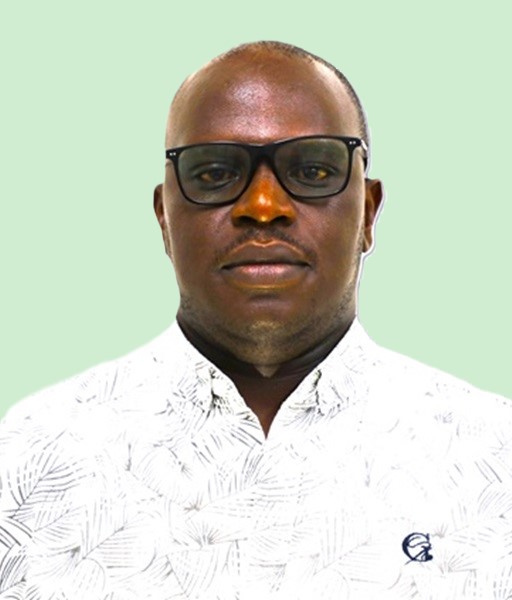
Langat Kipkorir
Langat is a research officer who works in the plant health unit. His focus is on increasing the diffusion and impact of the Push-Pull technology (VIPPT) in eastern Africa from a ‘One Health’ perspective. Before joining ICIPE, Langat worked as a Field Research Attendant with CIFOR-ICRAF, where he accelerated the adoption of sustainable practices. He also worked as an agronomist with East Africa Growers Limited, specializing in Passion and French beans, and as a Research Assistant with KARI/CIP, where he assessed post-harvest losses in potatoes. Currently, he is pursuing an MSc in Agricultural Economics and Resource Management from the University of Kabianga (2022-2024). He holds a BSc in Agricultural Education and Extension from the University of Nairobi and also holds several professional courses
|
| |
Our Goal
“To end hunger and poverty for
10 million people by extending Push-Pull
technology to 1 million households in
sub-Saharan Africa by 2030”,
Adopters

|














 Research Partners
Research Partners